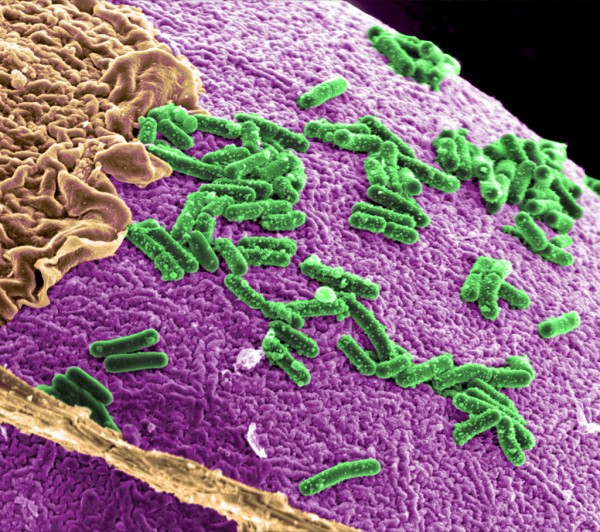By Dane Lorica, | November 08, 2016

A new study suggests that gut bacteria may help in improving the efficiency of immunotherapy. (Flickr)
A new study by the University of Texas and Cancer Research UK indicates that gut bacteria has the potential to alter the effects of chemotherapeutic drugs against cancer.
The human gut contains trillions of microorganisms which are believed to have benefits. Several studies have shown the positive effects of these bugs on the immune system particularly to address allergies and auto-immune disease. Meanwhile, immunotherapies for cancer suppress the immune system for the drug to easily kill mutated cells and tumors.
Like Us on Facebook
The Chief Executive of Cancer Research UK, Harpal Kumar, stated that "our bodies are filled with trillions of bacteria, and we are just beginning to scratch the surface of understanding their great potential."
The team of researchers performed a comparison of microbes found in 23 patients who underwent therapy and 11 control subjects. Based on the findings, there was a "night-and-day difference in the diversity of bacteria species in the fecal sample."
Specifically, the microbe Ruminococccus was found to have increased levels in individuals who received treatment. Melanoma surgeon and scientists Dr. Jennifer Wargo said that "it is hugely plausible I think - we still need to dig a little deeper, but I think we're on to something." However, it has not been confirmed if the changes in bacterial levels in the gut were behind the better response.
The study also revealed that people who regularly consume vegetables and fruits have more beneficial microbes which suggest that a healthier lifestyle would result in more effectiveness of the therapy. "It might point to a healthy diet increasing your chances, which I think would be a great message," Dr. Wargo added.
A greater number microbes may lead to a better response to therapy in patients suffering from malignant melanoma. However, Wargo noted that "not all patients respond to immunotherapy drugs and it's hard to know who will benefit from the treatment prior to it being given."
The study, which was discussed at the National Cancer Research Institute's Conference in Liverpool, suggests that immunotherapy may become more effective if the bacterial balance in the gut is also altered.
-
Use of Coronavirus Pandemic Drones Raises Privacy Concerns: Drones Spread Fear, Local Officials Say

-
Coronavirus Hampers The Delivery Of Lockheed Martin F-35 Stealth Fighters For 2020

-
Instagram Speeds Up Plans to Add Account Memorialization Feature Due to COVID-19 Deaths

-
NASA: Perseverance Plans to Bring 'Mars Rock' to Earth in 2031

-
600 Dead And 3,000 In The Hospital as Iranians Believed Drinking High-Concentrations of Alcohol Can Cure The Coronavirus

-
600 Dead And 3,000 In The Hospital as Iranians Believed Drinking High-Concentrations of Alcohol Can Cure The Coronavirus

-
COVID-19: Doctors, Nurses Use Virtual Reality to Learn New Skills in Treating Coronavirus Patients







